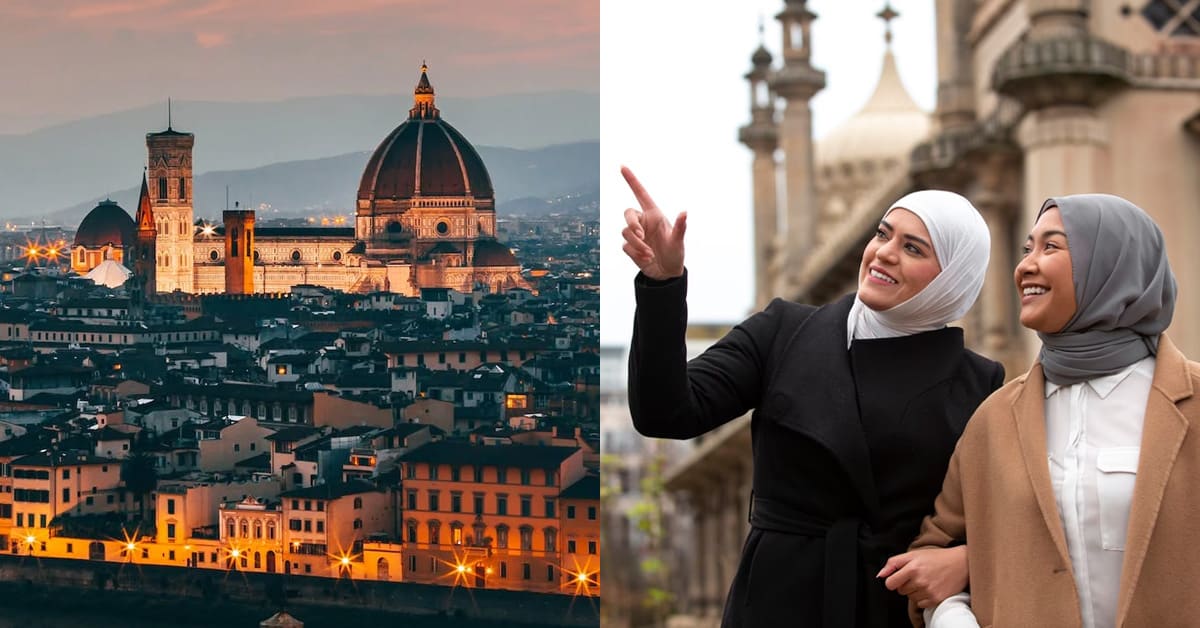Florence, the capital city of Tuscany in Italy, is a popular destination for Muslim travellers seeking to explore the rich history and culture of Europe. With its stunning architecture, world-renowned museums, and delicious cuisine, Florence offers a unique blend of Islamic and European influences that make it an ideal destination for Muslim travellers.
From the iconic Duomo to the Uffizi Gallery, Florence is a city that is steeped in history and culture, making it a must-visit destination for anyone interested in exploring the beauty of Europe. Whether you are looking to explore the city’s many mosques and Islamic landmarks or simply soak up the atmosphere of this vibrant city, Florence is sure to leave a lasting impression on any Muslim traveller.
Is Florence Muslim-friendly?
Is Florence Muslim friendly?
Yes, Florence is generally Muslim-friendly. Although it is predominantly a Catholic city, it has a growing Muslim population and offers some facilities for Muslim travellers.
There are a few mosques and Islamic centers, as well as halal restaurants and shops in the city. However, it is essential to plan and research in advance to ensure a comfortable stay and access to Muslim-friendly amenities.
Does Florence have halal food?
Yes, Florence does have halal food options available. There are several halal restaurants and food shops in the city, including La Medina, Aladino, and Halal Food Firenze.
Additionally, many non-halal restaurants also offer halal options on their menus.
Is Florence safe for Muslim?
Florence is generally considered a safe city for Muslims. Italy is a predominantly Catholic country, but it is also a secular state that respects religious freedom.
Muslims can find mosques and halal food options in Florence, and the city has a diverse and multicultural population. However, as with any city, it is always important to exercise caution and be aware of your surroundings.
Are there many Muslims in Florence?
According to the latest available data, the Muslim population in Florence is estimated to be around 10,000-15,000, which is a small percentage of the total population.
Is Florence a good place to live in for Muslims?
Florence is a multicultural city and has a small but active Muslim community. There are several mosques and halal restaurants in the city, and the local government is supportive of religious diversity. Therefore, it can be considered a good place to live in for Muslims.
As a Muslim, what should I prepare before travelling to Florence?
Here are some general tips for Muslim travellers visiting Florence:
- Research the availability of halal food options in Florence. You can use online resources or ask your hotel or tour guide for recommendations.
- Plan your prayer schedule and locate nearby mosques or prayer rooms. There are a few mosques in Florence, including the Florence Mosque and the Islamic Cultural Center of Florence.
- Dress modestly and respectfully, especially when visiting religious sites such as churches or cathedrals.
- Learn some basic Italian phrases to help you communicate with locals and navigate the city.
- Be aware of the local customs and laws, and respect them. For example, public displays of affection are not common in Italy, and it is illegal to drink alcohol in public places.
- Carry a copy of your passport and other important documents with you at all times, and keep them in a safe place.
- Be mindful of your surroundings and take necessary precautions to ensure your safety, especially when traveling alone or at night.
What is the largest mosque in Florence?
The largest mosque in Florence is the Mosque of Florence, also known as the Islamic Cultural Center of Italy. It was inaugurated in 2015 and covers an area of 2,500 square meters. The mosque can accommodate up to 2,000 worshippers and features a prayer hall, a library, classrooms, and a cultural center. The mosque’s architecture is a blend of traditional Islamic and modern Italian styles, with a dome and minaret that are visible from afar. The mosque is open to visitors and offers guided tours to promote interfaith dialogue and cultural exchange.

